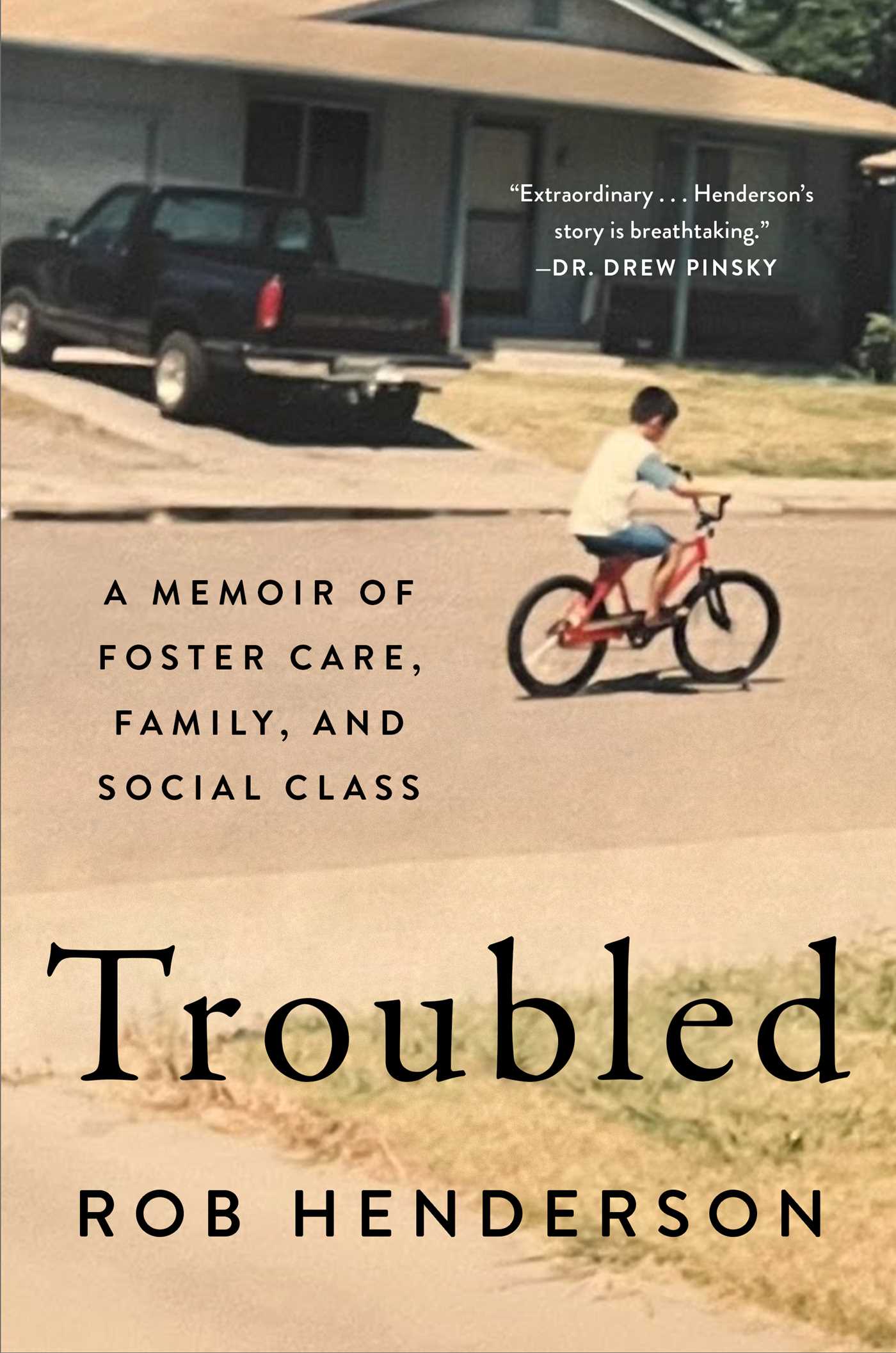
Troubled: A Memoir of Foster Care, Family, and Social Class
Rob Henderson
Publisher
Gallery Books
Publication Date
2/20/2024
ISBN
9781982168537
Pages
336
Questions & Answers
Rob Henderson's memoir, "Troubled," offers a poignant and insightful perspective on the complexities of upward mobility and societal disparities in the U.S. Through his narrative of foster care, family instability, and social class dynamics, Henderson highlights the limitations of education and wealth as solutions to social mobility. He argues that the lack of a stable and loving family environment, rather than mere economic or educational disadvantages, is a significant barrier for many. Henderson's experiences underscore the importance of family, stability, and emotional security for children's development and future success, suggesting that these factors are crucial for upward mobility. His narrative also challenges the "luxury beliefs" of the upper class, which often prioritize status and wealth over addressing the root causes of societal disparities. Overall, Henderson's memoir contributes to a broader understanding of the multifaceted nature of upward mobility and the need for systemic changes to support children and families in achieving stability and success.
Education plays a significant role in the social class system, often serving as a marker of status and a pathway to upward mobility. However, Henderson's experience at Yale reflects the concept of 'luxury beliefs,' where education is used to confer status with minimal cost. He observed that elite institutions, like Yale, not only educate students but also induct them into a 'luxury belief' class. This class is characterized by beliefs that are easy for the upper class to adopt, such as supporting defunding the police or drug legalization, which often have more significant consequences for the lower classes. Henderson's experience also highlighted the selective nature of these beliefs, as they were more prevalent among the wealthy and educated, rather than being universally accepted or beneficial.
Henderson's journey vividly illustrates the profound impact of trauma, neglect, and emotional well-being on an individual's life and potential for success. Growing up in foster care, he faced instability, abuse, and a lack of consistent care, leading to emotional turmoil and self-destructive behaviors. Despite his academic achievements, his early experiences hindered his social and emotional development. The military provided structure and discipline, but also exposed him to the complexities of social class and the concept of "luxury beliefs." His time at Yale and Cambridge, while academically successful, revealed the lingering effects of his past, including self-loathing and trauma. His story underscores the importance of a stable, loving family environment for children's well-being and potential for success, beyond mere academic or financial achievements.
'Luxury beliefs' are ideas and opinions that confer status on the upper class at little cost, often inflicting costs on the lower classes. They include beliefs like:
- Support for Defunding the Police and Drug Legalization: These policies may seem progressive but can harm lower-class individuals more, as they are more likely to be victims of crime and less likely to benefit from leniency in the legal system.
- Belittling Marriage: Upper-class individuals often dismiss marriage as unimportant, despite the fact that most of them are married when they have children. This belief can undermine the stability of lower-class families.
- White Privilege: This belief, often promoted by upper-class white individuals, can be used to gain status without considering the real-life consequences for poor white people.
- Polyamory and Sexual Freedom: These lifestyles may be easier for the upper class to manage due to their financial and social resources, but can be more difficult for lower-class individuals to navigate.
- Luck as the Main Factor in Success: This belief can undermine the importance of hard work and effort, which is more prevalent among lower-class individuals.
These beliefs can perpetuate social hierarchies by reinforcing the status quo and making it difficult for individuals from lower social classes to achieve upward mobility. They can also lead to a lack of empathy and understanding between different social classes, exacerbating social inequalities.
The book highlights systemic issues in foster care, family instability, and social class. Potential solutions include:
- Stable Foster Care: Limit the number of placements and ensure each foster home is well-prepared to provide a stable environment.
- Supportive Families: Prioritize family preservation and support services for struggling families to prevent foster care placements.
- Education: Focus on holistic education that addresses social and emotional needs, not just academic ones.
- Social Class Awareness: Promote awareness of class privilege and its impact on social mobility, and encourage empathy and understanding.
- Policy Changes: Implement policies that address the root causes of poverty and inequality, such as affordable housing and healthcare.
Individuals and society can work together by:
- Advocacy: Support policies and initiatives that promote equity and social justice.
- Community Engagement: Participate in community programs that support families and children.
- Education: Learn about social issues and biases to foster empathy and understanding.
- Support Networks: Create and maintain support networks for those affected by these systemic issues.